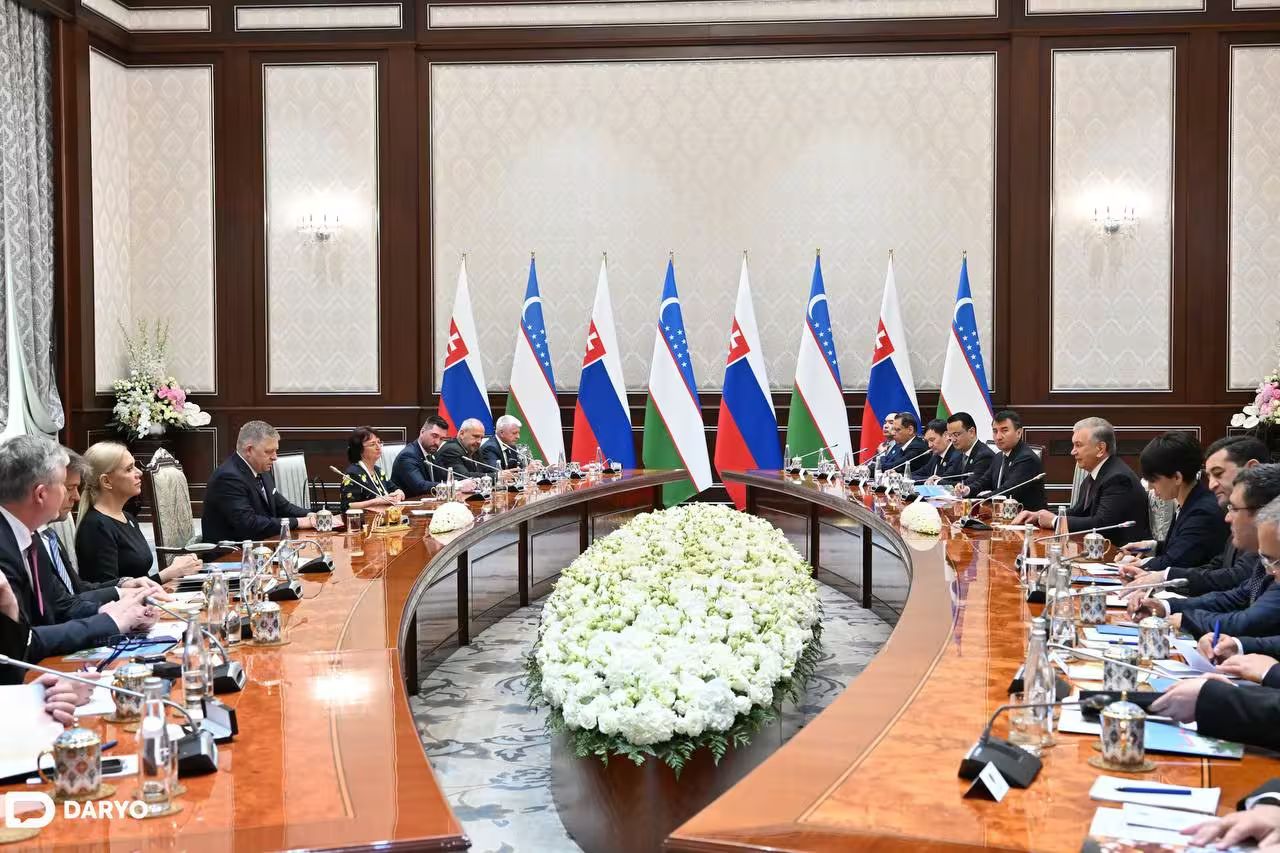On June 9, President Shavkat Mirziyoyev of Uzbekistan held talks with Prime Minister Robert Fico of Slovakia at the Kuksaroy residence.
As reported by the President’s press service, the discussion focused on expanding practical cooperation between Uzbekistan and Slovakia.
President Mirziyoyev emphasized that the Prime Minister’s visit marks a new phase in the multifaceted relationship between the two nations.
Both sides noted the dynamic growth across various sectors, including constructive political dialogue at the foreign ministry level and increased business and cultural exchanges.
Bilateral trade is flourishing, further bolstered by the productive first meeting of the Intergovernmental Commission in May. New avenues of cooperation and joint projects are actively being developed.
Given the current global uncertainties, the leaders highlighted the importance of systemic collaboration and mutual support through their foreign ministries, including within the framework of partnerships with European institutions.
A key focus was on increasing trade volume by diversifying the range of goods exchanged. This includes Uzbekistani textiles, agricultural products, electrical equipment, chemicals, and polymers, and Slovakian rubber, auto components, pharmaceuticals, and other industrial goods.
To facilitate trade, the importance of removing technical barriers and launching a quantum standard laboratory was stressed, aligning with agreements on technical regulation and metrology.
A comprehensive industrial cooperation program with leading Slovak companies was agreed upon. This program will encompass projects in the agro-industrial complex, localization of auto components, pharmaceutical production, green energy, and tourism.
Significant potential exists in digital solutions and startup investments. The creation of a joint venture fund to accelerate IT startups was proposed.
Existing financial instruments were also suggested for supporting joint projects.
In the humanitarian sphere, both sides expressed keen interest in expanding educational and academic exchanges, agreeing to launch joint research programs, including with Comenius University in Bratislava.
A cultural exchange program was also agreed upon, featuring mutual exhibitions, film screenings, concerts, and museum projects.
Organized labor migration was another key topic, with Slovakia expressing strong interest in establishing systematic cooperation in this area.
The leaders also exchanged views on international issues, including mutual support on multilateral platforms.
Finally, to ensure the timely and effective implementation of agreements, both governments agreed to adopt a comprehensive roadmap.

